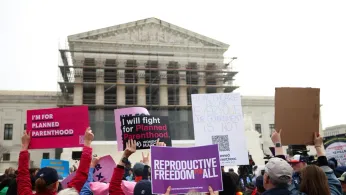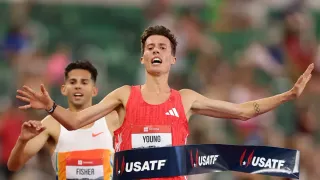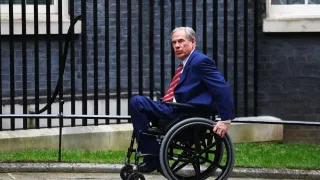
3 hours ago
Trump Administration Seeks to Limit Abortion Access for Veterans, Following Restrictions on Gender-Affirming Care
READ TIME: 3 MIN.
In a significant policy shift, the Trump administration has formally proposed a rule that would strip away abortion coverage and counseling for veterans and their dependents receiving care under the Department of Veterans Affairs (VA). The proposed rule, announced on August 2, would ban abortion services even in cases of rape or when a pregnancy threatens the health of the veteran—a marked departure from the limited, yet critical, abortion access guaranteed under previous VA policy .
The Department of Veterans Affairs stated that the new rule is designed to ensure that the VA "provides only needed medical services to our nation's heroes and their families," arguing that the previous expansion of abortion access under the Biden administration was a case of federal overreach and inconsistent with decades of policy against taxpayer funding for abortion .
Abortion services through the VA have historically been highly restricted. In September 2022, following the Supreme Court's decision to overturn *Roe v. Wade*, the Biden administration authorized the VA to provide abortion counseling and, in limited circumstances, abortion care for veterans and their dependents—specifically in cases of rape, incest, or when the pregnancy posed a risk to the individual's health . This policy was hailed by advocates as a crucial safeguard for veterans, particularly those living in states with near-total abortion bans.
The newly proposed Trump administration rule seeks to reverse these protections. If implemented, the policy would apply to veterans in all 50 states, including those residing in the more than a dozen states where abortion rights remain constitutionally protected . For veterans in states with strict abortion bans, this change would effectively eliminate one of their only remaining avenues to access abortion care.
Reproductive rights organizations and LGBTQ+ advocacy groups have condemned the proposal as a dangerous move that disproportionately harms already vulnerable populations, including LGBTQ+ veterans, survivors of sexual violence, and those living in medically underserved areas .
Nancy Northup, President and CEO of the Center for Reproductive Rights, criticized the administration's decision, stating, "After veterans put their lives on the line to protect our freedoms, the Trump administration is trying to rob them of their own freedoms and putting their health at risk. This administration is sending a clear message to veterans—that their health and dignity aren’t worth defending" .
Senator Richard Blumenthal (D-CT), Ranking Member of the Senate Veterans’ Affairs Committee, also denounced the proposed rule, emphasizing that the government "should not be able to impose a pregnancy on anyone—least of all survivors of rape, abuse, or those whose health is at risk" . He vowed to fight the policy, calling it "harmful and reckless."
This policy change comes shortly after the Trump administration moved to limit gender-affirming care for veterans, raising grave concerns among LGBTQ+ advocates about the cumulative impact of these restrictions on the health and well-being of LGBTQ+ veterans. The intersection of abortion rights and access to gender-affirming healthcare is particularly critical for transgender, nonbinary, and gender-diverse veterans who may require both services as part of comprehensive, affirming care.
Research consistently shows that LGBTQ+ veterans face higher rates of sexual violence and healthcare discrimination compared to their non-LGBTQ+ peers, making access to safe, confidential reproductive and gender-affirming care especially vital . Advocates warn that restricting abortion access, particularly in cases of rape and life-threatening pregnancies, will further endanger the lives and well-being of these veterans.
The proposed VA policy is currently open for public comment for 30 days before it can be finalized. Health experts, veterans, and the public are encouraged to provide feedback on how the rule could affect veterans' health and lives .
If implemented, the rule would make VA abortion policy one of the strictest in the nation, closing off access even in states where abortion remains legal. For LGBTQ+ veterans and their families, the rollback of both abortion and gender-affirming care represents a significant threat to health equity and personal autonomy.
Advocates, lawmakers, and veterans’ organizations are expected to mobilize in opposition to the proposed rule in the coming weeks, with calls for Congress and the public to defend the reproductive and bodily autonomy of all veterans—regardless of gender identity or sexual orientation.






